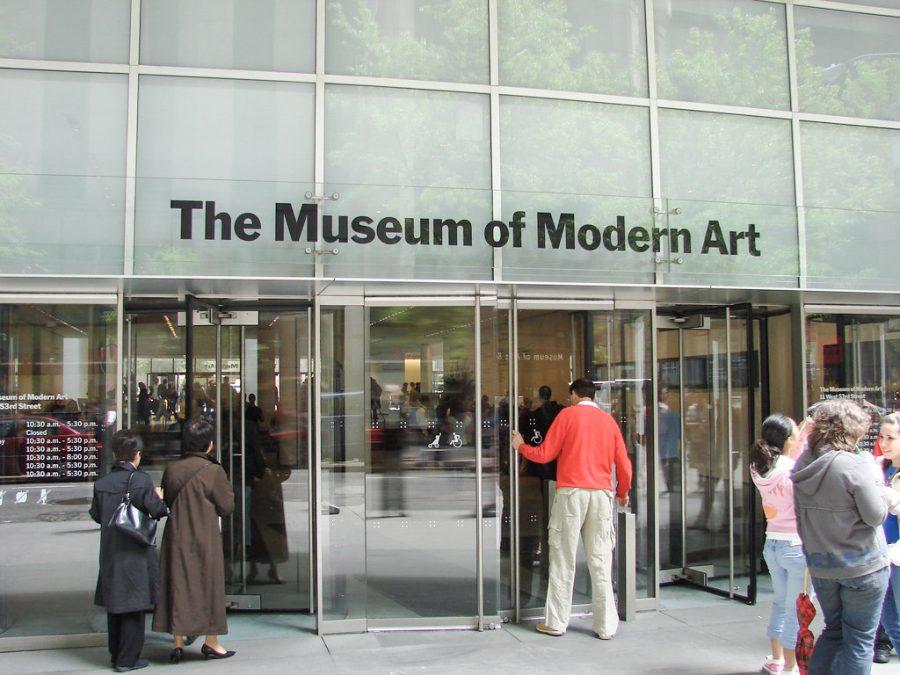An open letter denouncing the Museum of Modern Art’s connection to companies invested in the private prison system and migrant detention was signed by over 200 members of the art community — including 12 NYU professors — two weeks before the museum will open its $500 million refurbished galleries.
MoMA has been criticized because CEO of BlackRock, Inc. Larry Fink is on its board of trustees. Fink, who is also an NYU Board of Trustees member, is a major investor in two private prison companies through BlackRock: GEO Group and CoreCivic. The letter was written by New Sanctuary Coalition, an immigrant-rights advocacy group, and calls on Fink and MoMA to divest from both companies and reallocate funds towards local and global community-oriented programs.
“We denounce MoMA’s connections to mass incarceration, global dispossession and climate catastrophe,” the letter reads. “[We] demand that MoMA’s Board member Larry Fink, CEO of BlackRock, divest from prison companies, the war machine and the destruction of the global environment.”
In a statement from BlackRock, spokesperson Melissa Garville said most investments in the companies are made through index funds, which invest in a set group of companies based on their performance and are not dictated by the funds’ owners.
“The vast majority of our equity assets are held in index funds — which are designed to track the investment results of third-party indices, which our clients choose to invest in.” Garville said.
However, it is not only BlackRock and Larry Fink from which activists are calling on MoMA to divest. MoMA’s pension funds are managed by Fidelity Investments, which is a large shareholder in private prisons.
“It’s not just about Larry Fink, it’s also about the institutional DNA of MoMA itself,” NYU Italian Studies professor Ara Merjian, a signatory of the letter, told WSN.
Merjian said the timing of the letter was crucial.
“It’s obviously a moment to call public attention, in the midst of this celebration of its reopening, to where the museum is putting some of its money and where it’s getting some of its money,” Merjian said.
NYU Professor of Media, Culture and Communication Nicholas Mirzoeff, another signatory, said for many years, the practice of “artwashing” — in which those who acquire their money in unethical ways divert attention by donating to artistic and cultural institutions — was commonplace.
Now, Mirzoeff said, more attention is being brought to where donors’ money is coming from.
“We are at a point now where we want to see our institutions be consistent,” Mirzoeff said in an interview with WSN. “That is to say that, not only front of house where we are looking at something beautiful, inspiring and creative, but how did that object get there? Under what circumstances? Who paid for it? How did it come to be where it is?”
On Friday, a coalition of activist groups including CODEPINK, Sin Fronteras, New Sanctuary Coalition, Decolonize This Place, Movimiento Cosecha, Close the Camps and others organized a protest at the doors of the MoMA.
Protestors chanted “Larry Fink has got to go” and “Fink divest.”
“MoMA is actively complicit in what Larry Fink is doing because he’s on their board, he’s on their big decision-making body, he legitimizes them that way,” said CAS 2019 graduate Rose Asaf, who attended the protest.
Activists say that investments in private prisons are inherently racist due to mass incarceration’s disproportionate effect on minority populations.
Similar movements have been successful. This past summer, Warren Kanders resigned from the Whitney Museum’s board of trustees after protests called for him to step down due to his involvement in the production of tear gas used at the U.S.-Mexico border.
At NYU, students protested the university’s food service provider, Aramark, due to its own ties to private prisons. Aramark lost its contract with the university last semester, although NYU’s current provider, Compass Group, also has ties to private prisons.
Mirzoeff said he supported students, such as members of the Incarceration to Education Coalition, that protested Aramark.
“This all seems to us to be of apiece — these are not separate issues,” Mirzoeff said. “They run through the same individuals over and over again. We like to think of NYC as a liberal town. It ain’t. It’s run by 20 billionaires.”
When it comes to MoMA, Mirzoeff doesn’t think their current practices are acceptable.
“The Museum of Modern Art and other institutions that want to represent what they think is the best and the finest of human product can’t do that, in our view […] if they’re doing it on the backs of human suffering,” Mirzoeff said.
A version of this article appeared in the Monday, October 21 print edition. Email Rocio Fabbro at [email protected].
























































































































































